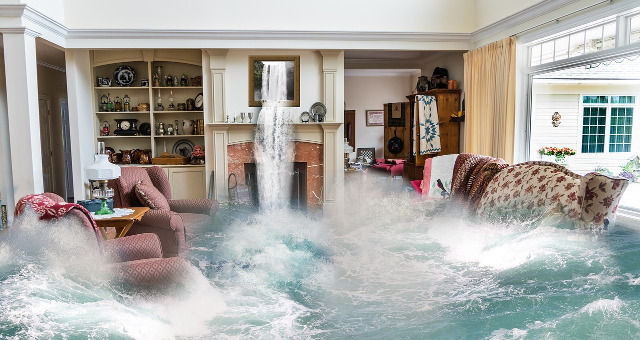
While at home your spouse walks into the room, makes a statement and asks a question. You’ve heard this before; you know this isn’t going to be a good conversation. You instantly feel tense, worried, scared, or helpless.
The conversation continues and the negative tone heightens and the rate of words increases. There’s a question, question, statement, observation, statement, question, statement, question, observation, etc. ![]() You begin to flood. You so desperately want to participate, but you can’t. You want to clarify, but you’re frozen, your partner is on point 15 and you’re stuck at question 2. You begin to shut down or stonewall.
You begin to flood. You so desperately want to participate, but you can’t. You want to clarify, but you’re frozen, your partner is on point 15 and you’re stuck at question 2. You begin to shut down or stonewall.
Flooding occurs when you begin to feel physiologically (how our body responds to events) and physically overwhelmed during a conflict discussion. In his research, Dr. John Gottman found that when couples flood, it is nearly impossible to have a productive, constructive, problem-solving discussion or dialogue.
Most people know they are reacting to a negative conflict, but most people aren’t aware of why and how they automatically respond this way and get stuck in this pattern. The way we internally respond to conflict plays a major role here – when we sense a conflict coming, our rate of breathing increases, we begin to sweat more
Our heart rate increases and once our heart rates move above 100 bpm, our brain and body begin to assume we are in danger and we react. Our bodies release cortisol (stress hormone) and adrenaline.
We flood and enter into fight, flight, or freeze.
So many things are going and all at the same time! No wonder it’s so hard to have a constructive conversation! We cannot always find the best way to express exactly what is happening. One way to ensure a constructive interaction is to begin your conversation gently.
It is important to understand that flooding is a common response to stress and conflict; however, it should never be the excuse. (i.e. “I just can’t have these conversations, they are just too hard. I just can’t handle it!”)
The first thing to be aware of is how you are responding and how you are feeling. If you feel yourself growing in frustration or quickly shutting down, it is best to respond to flooding by simply taking a break. This does not include going to your respective corners or sharpening your preverbal arrows preparing for battle.
Here are some suggestions on how to relax before coming back to the conversation:
Go for a walk/run
Read your favorite passages of scripture
Take a soothing shower/bath
Read a book or magazine
Watch your favorite TV show
Pray for peace and/or patience
Pray for your spouse
This heightened response can last anywhere from 20 minutes to 2 hours. The above examples are ways to genuinely come back to a state of calm or relaxation. After a break, it is crucial to come back to the conversation and try again using the tools to start a conversation.
